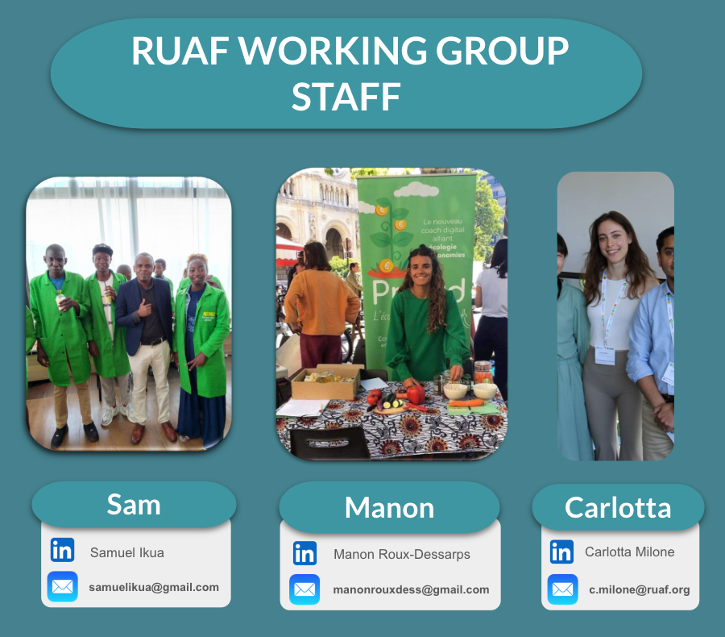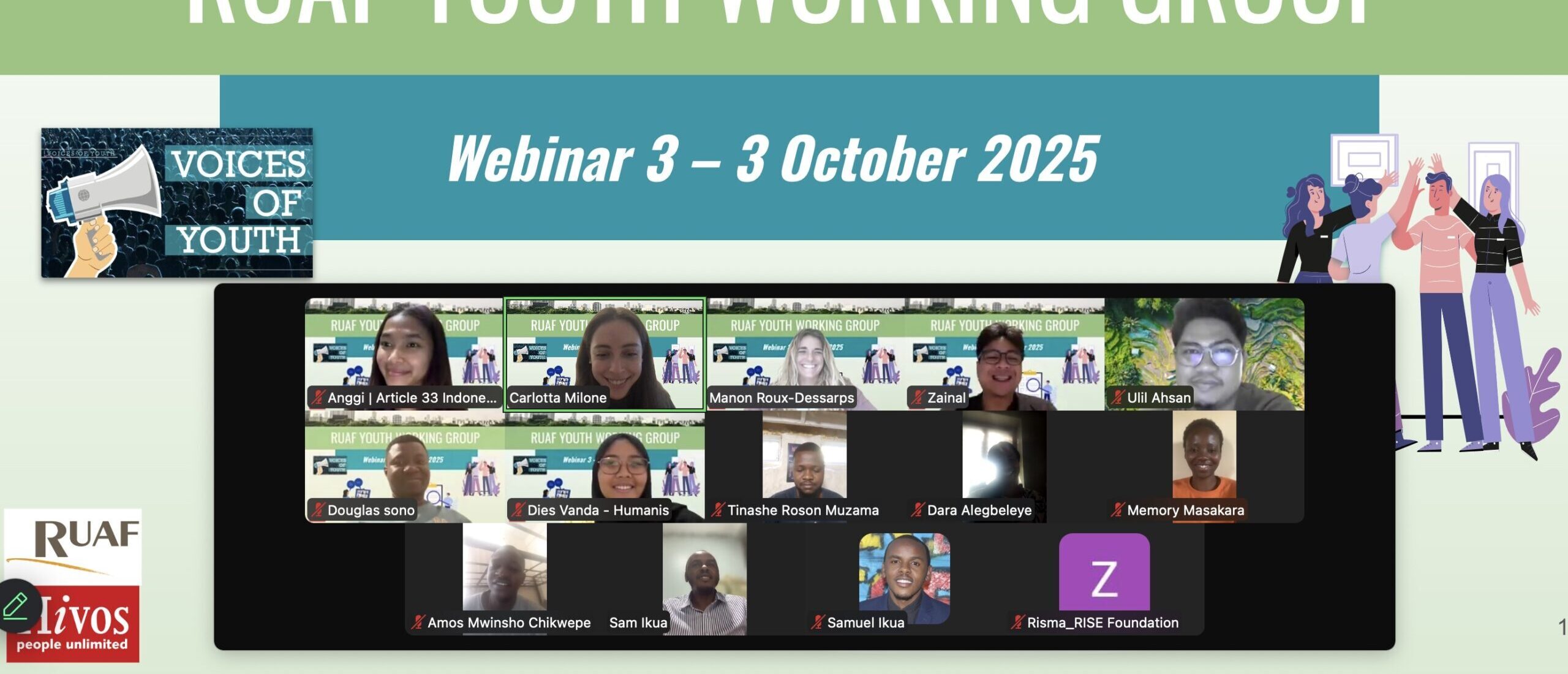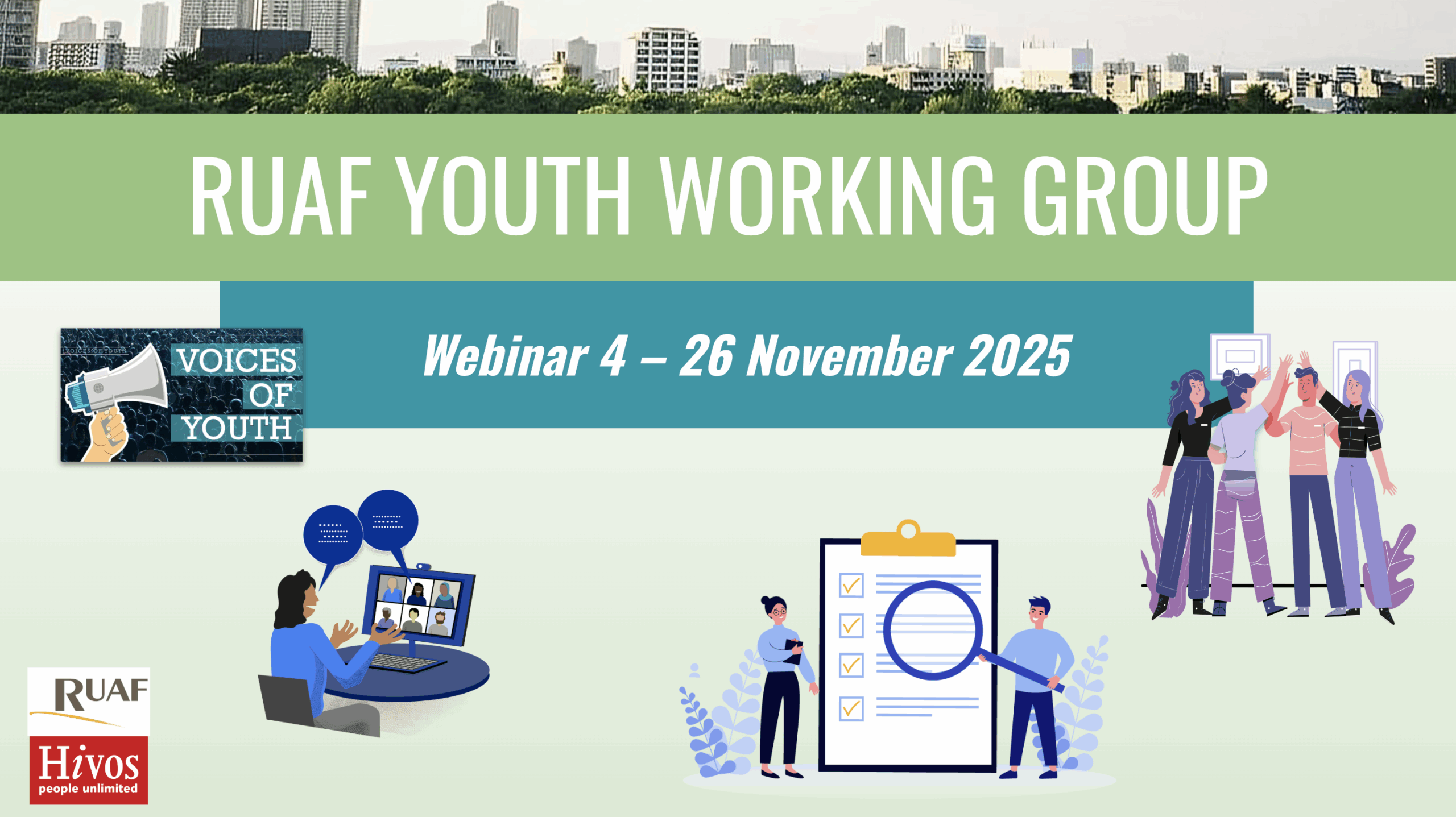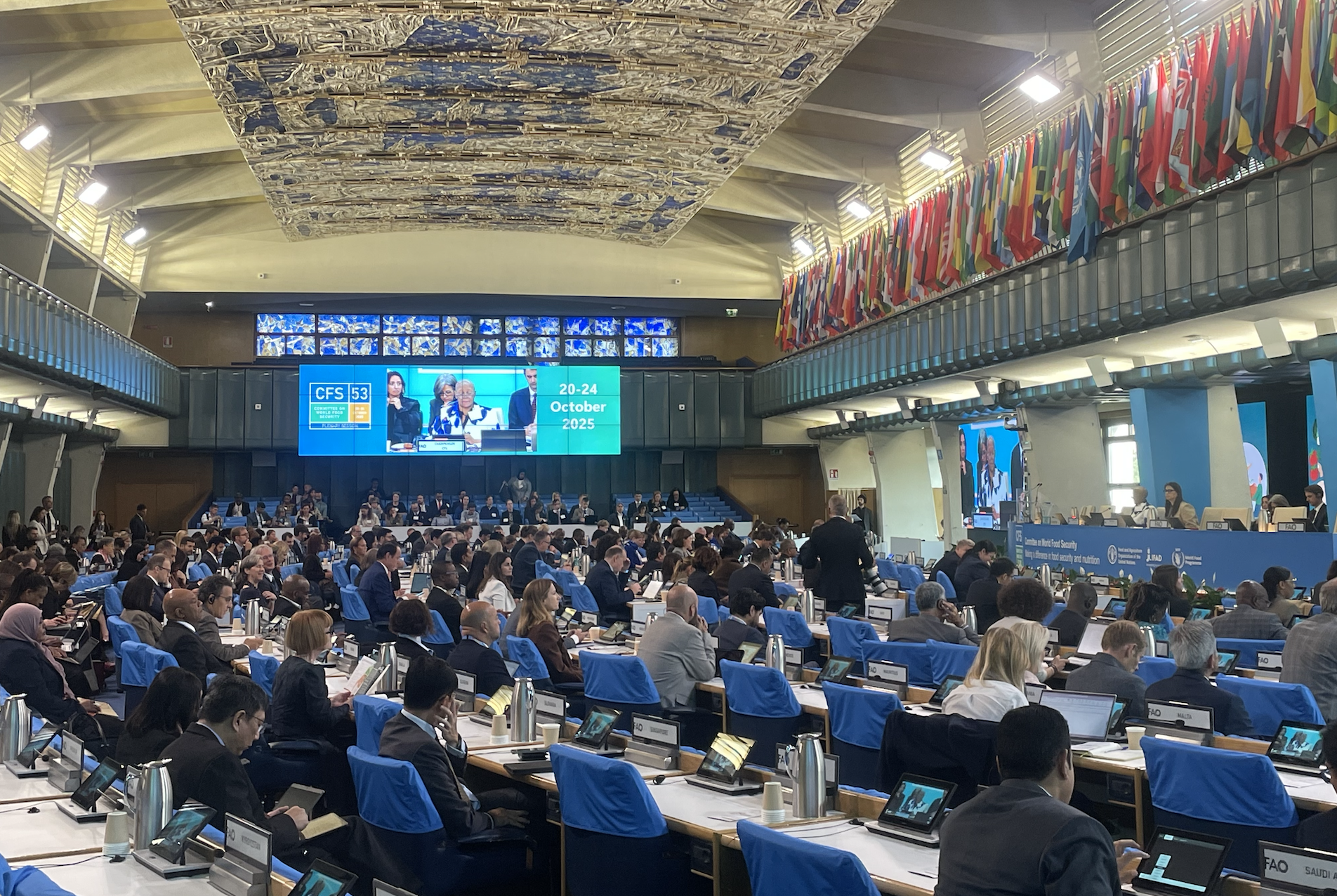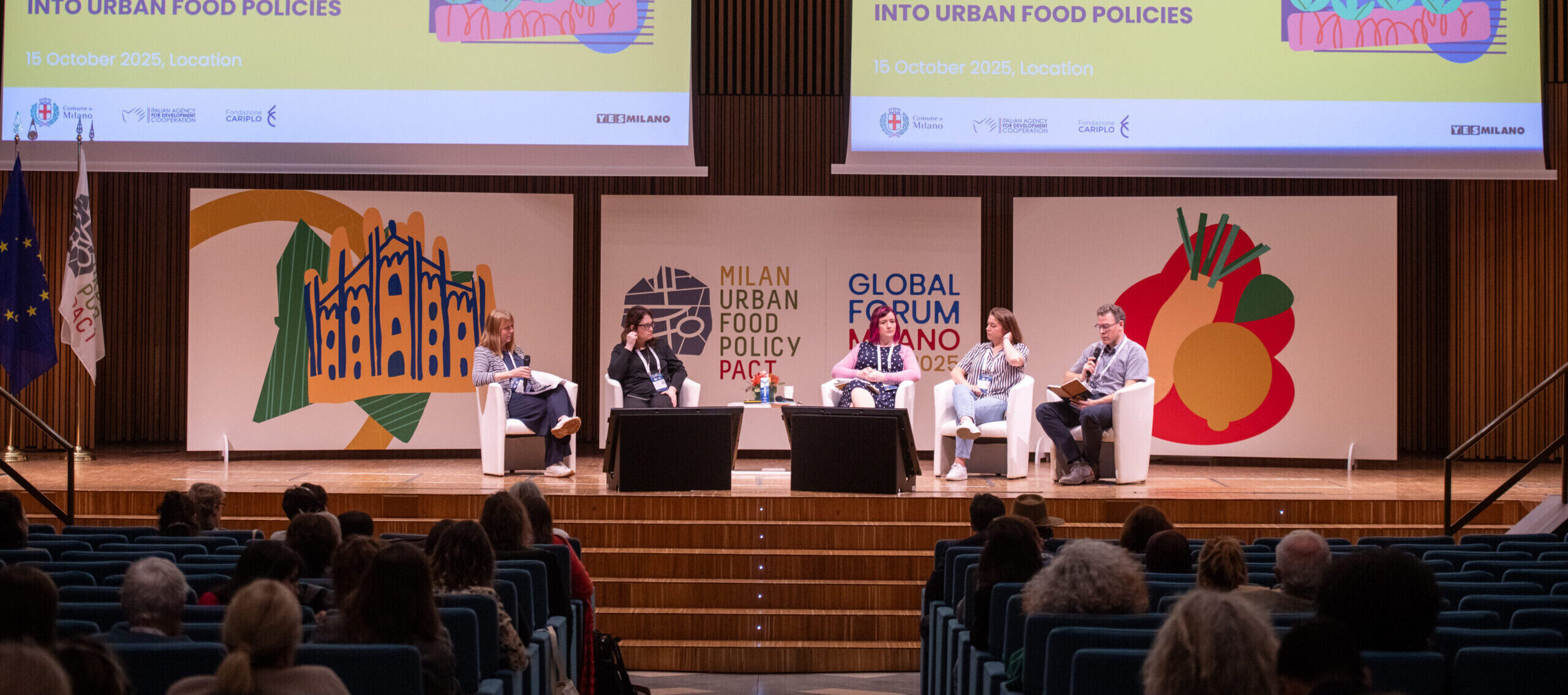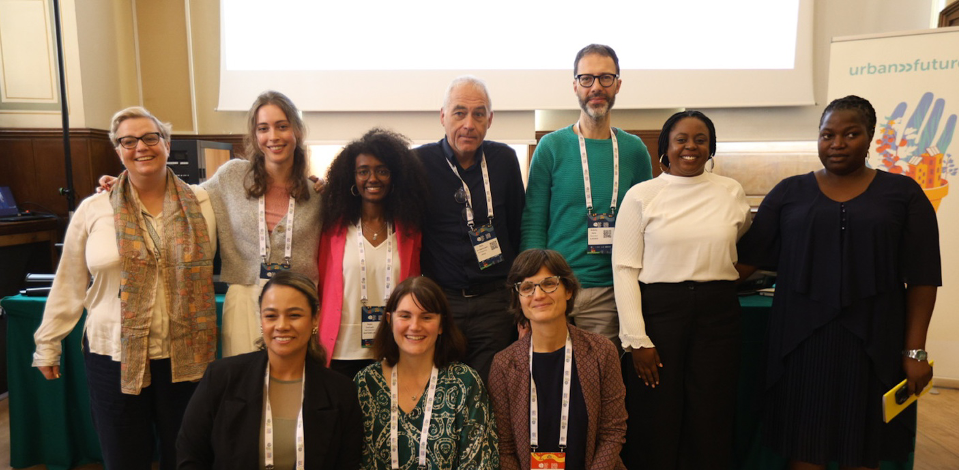Members of the RUAF Youth Working Group (YWG) have shared valuable insights on how the Committee on World Food Security (CFS) Policy Recommendations on Promoting Youth Engagement and Employment in Agriculture and Food Systems translate into different national and regional realities around the world.
The CFS Policy Recommendations on Promoting Youth Engagement and Employment in Agriculture and Food Systems were the focus of Webinar 3 of the YWG, held on 3 October 2025. The session built on earlier 2024 YWG exchanges, inviting participants to reflect on how these global policy tools connect with their lived experiences across different regional and national contexts.
During the webinar, participants were divided into two regional groups — Asia and Africa — to discuss the five key areas of the CFS recommendations. Each group examined:
- What works well in their region
- The main challenges and barriers faced
- What might be missing or could be strengthened
Discussing the CFS Policy Recommendations within the RUAF Youth Working Group was an important opportunity to connect global policy frameworks with the real experiences of young people working in food systems. It gave YWG members space to reflect on how international guidance can drive meaningful change for youth engagement, while learning from each other’s experiences and identifying practical ways to strengthen the role of youth in shaping sustainable food systems. The reflections gathered will inform participants’ future activities and collaborations, helping translate shared learning into concrete actions within their organizations and communities.
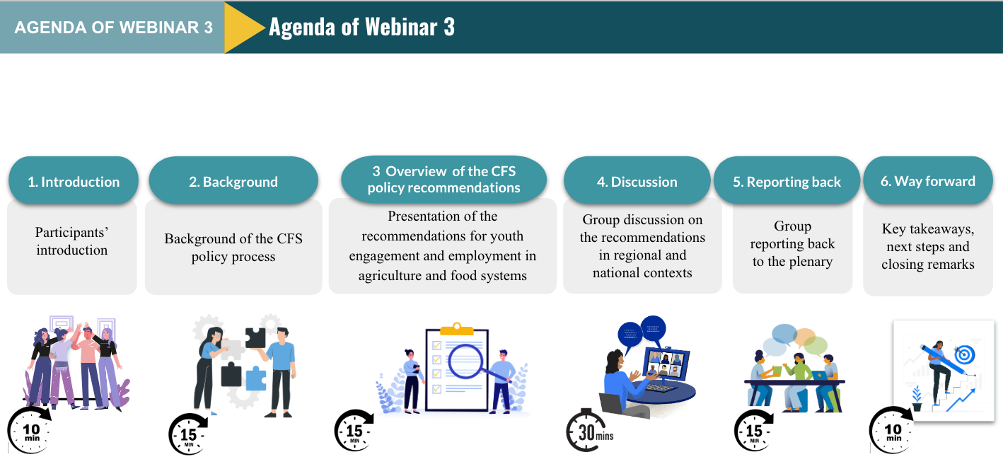
The CFS Policy Recommendations
In 2021, the High-Level Panel of Experts on Food Security and Nutrition (HLPE-FSN) released a report on “Promoting Youth Engagement and Employment in Agriculture and Food Systems”. Building on this, the CFS released its Policy Recommendations on Youth Engagement in Agriculture and Food Systems.
These voluntary, non-binding recommendations aim to support governments and stakeholders in creating enabling environments for youth. They target national, regional, and local authorities, working in consultation with youth, women, producer and farmers’ organizations, workers’ unions, cooperatives, indigenous people, the private sector, local communities, research organizations and civil society.
The recommendations focus on five main areas designed to make agriculture and food systems more inclusive, innovative, and sustainable for young people.
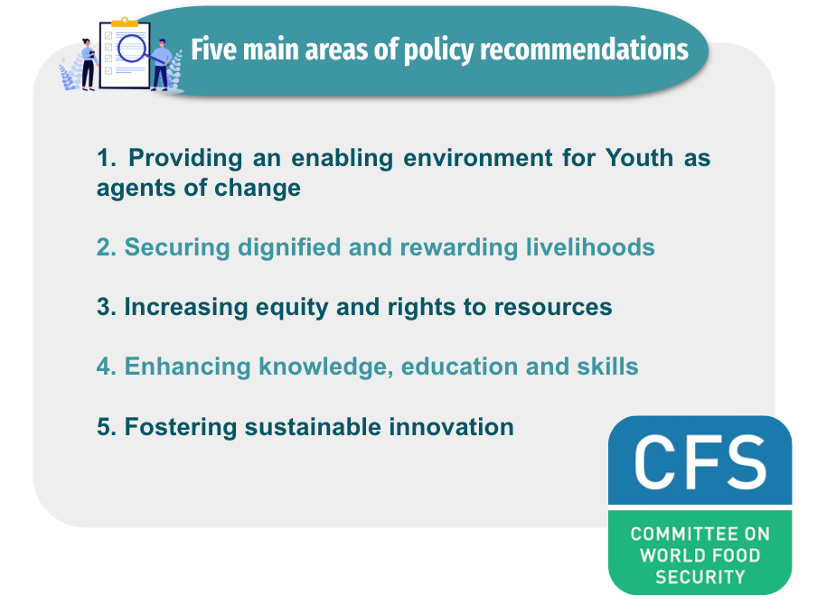
Key Takeaways from the Webinar
After introducing the CFS context, explaining the policy recommendations, and outlining the session’s objectives, participants were divided into two groups — Asia and Africa — based on their region and preference. Each group then reported back to the plenary to share key takeaways:
Asia (Indonesia)
- Participants identified several promising initiatives promoting youth engagement and employment in food systems, including a multi-stakeholder forum in West Manggarai, youth programmes like the Youth Entrepreneurship and Employment Support Services (YESS) and Urban Futures, and training initiatives connecting students to the job market.
- Key challenges identified by the YWG participants include a lack of social protection for youth and limited access to financing — existing schemes do not specifically target young people, and administrative procedures make it difficult to obtain loans, especially for non-existent or newly established businesses.
- Participants noted that the CFS recommendations could place more focus on support for indigenous communities, especially regarding land access and restoration.
Africa
- Participants cited positive examples of access to finance, such as in Ghana, where banks support youth to buy land and fund agricultural projects.
- Land ownership remains a central issue: land is often held by elders, limiting young people’s ability to engage in agriculture. Participants also emphasized the need for training in agroecological urban food production and for stronger market access to make food production viable for youth. In some contexts, like Kenya, imports reduce local prices and limit profitability.
- The participants noted that the recommendations should promote greater gender inclusivity — women, especially in rural areas, often have fewer opportunities for land and resources, despite their crucial roles in household food systems. Youth perceptions should also be addressed: many still see agriculture as “for the elderly”. Leveraging social media could help shift this narrative and attract more young people into the sector.
These exchanges show the value of youth-led dialogue for translating policy into action: youth are not just beneficiaries of policy but essential co-creators of more sustainable, resilient, and equitable food systems.
Looking Ahead
We thank all participants for their energy, insights, and contributions to this important exchange.
The YWG looks forward to continuing these conversations during Webinar 4 in November 2025, building further on the momentum to strengthen youth engagement in food systems globally.
